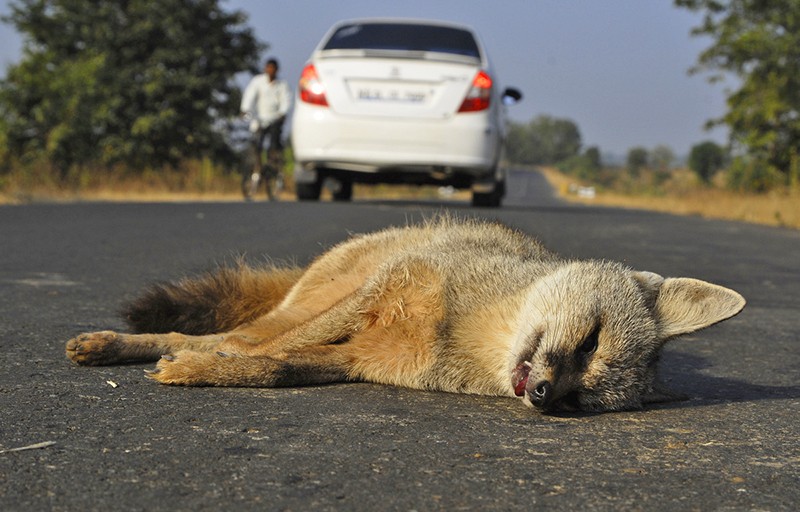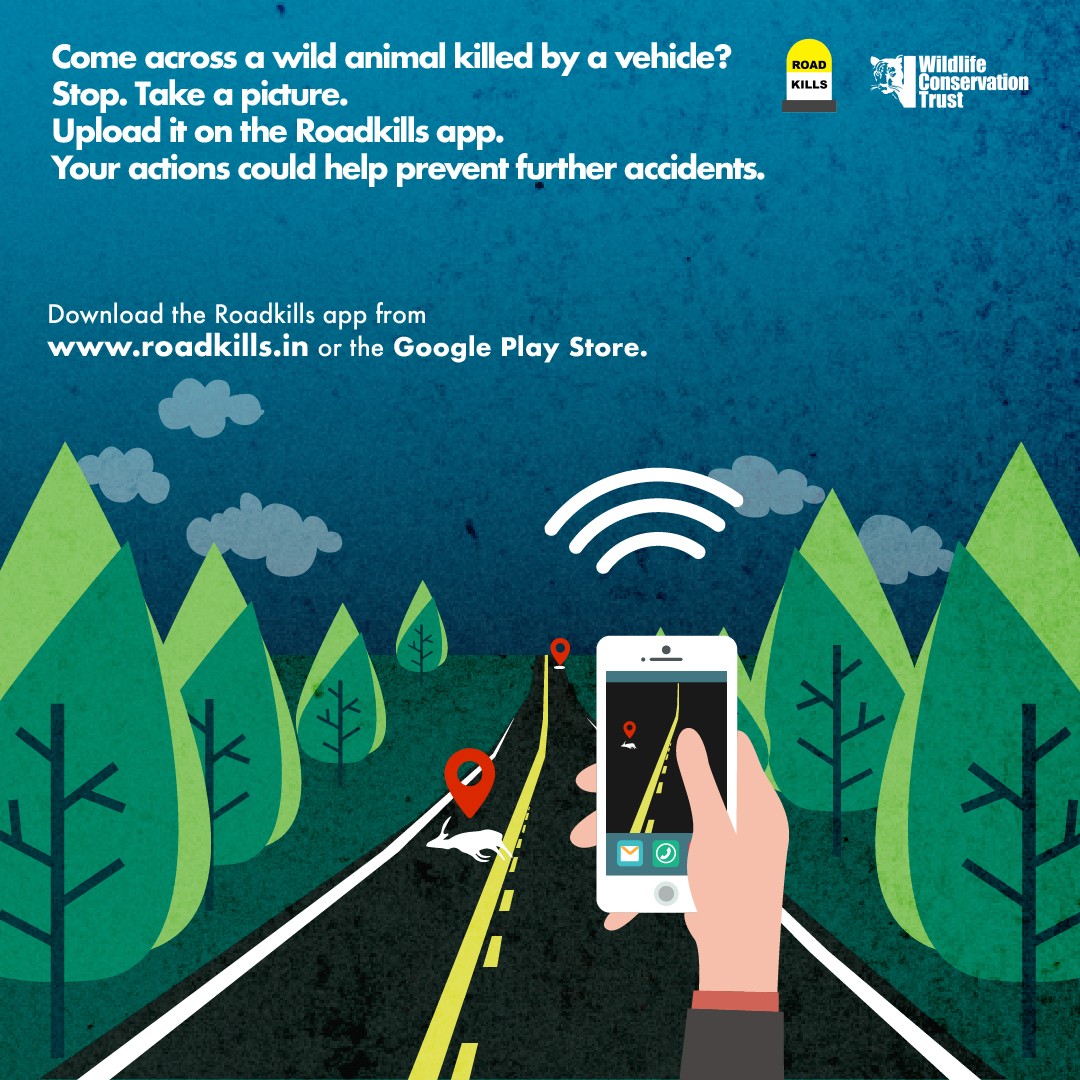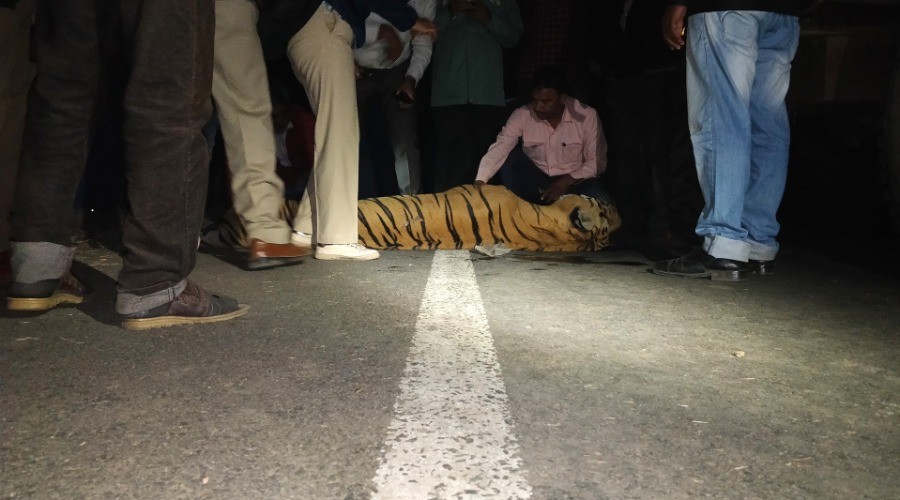Rev up against Roadkills
Are you app for creating a safer space for our wildlife? Here’s how you can help
Roadkill is one of those gnarly, upsetting things that has affected most of us at some point or the other. We’re betting you’ve either seen it, or you’ve caused it. It’s estimated that a million to two million animals die each year because of speeding vehicles, just in the US (such data is harder to come by for India).
In India, we’ve been laying down 22 kilometers of new road per day, on average. That’s over 8,000 kilometres in a year. So it’s safe to say that roadkill accidents are likely to be on the rise, too.
Scientists have been trying to find solutions to roadkill for a while now. World over, there’ve been experiments with wildlife crossings, reduced speed limits, cautionary warning signs and even roadside animal detection systems that light up when an animal crosses the road. But not everything’s been viable or scalable.

Photograph courtesy Anish Andheria/WCT
Now, conservation NGO Wildlife Conservation Trust (WCT) has launched a useful app to collect data on roadkills in India. With this app, they hope to fill critical gaps in our understanding of the scale of the problem, as well as come up with potential (and hopefully effective) solutions.
The app is a spin-off of the web-based citizen science project Roadkills.in, which invites citizen scientists (that’s us) to report data on animal deaths on roads and railway lines. How would this work? If you spot an incident (or cause it), take a photograph and input location details. You can pick the taxon – was it a snake, a mammal or a bird? Domestic or wild? This data could potentially help both conservationists and road planners identify areas that see a lot of incidents, and devise better ways to prevent or mitigate unnecessary mortality.

True to the spirit of scientific enquiry and open science, the team behind Roadkills.in has an open data-sharing policy for anyone interested in incorporating insights from the available data into research or planning. For instance, this data could be shared with, say, the National Highways Authority of India (NHAI), to help them decide whether to widen a particular stretch of highway, or to find some other solution for an area that sees a lot of fatalities. In the long term, this data can be used for modelling as well, wildlife biologist Milind Pariwakam tells Nature inFocus. For instance, the trip-based feature on the app can help researchers collect data for a single trip, from start to finish.
For this app to work, we all need to avoid looking away and start to face the problem head on. Download the Android app now. An iOS version will be released shortly, and support for regional languages is in the pipeline too. The team also plans to organise online campaigns to build awareness about the issue of roadkills, and to engage even more people in the cause.
Cover photograph courtesy Sheetal Navgire/WCT
